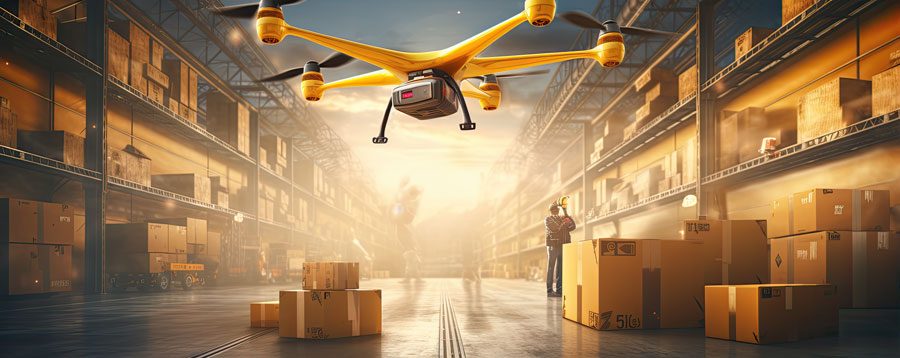Can You Fly a Drone at Night in the UK?
Flying a drone has become a popular activity for many, merging technology with the great outdoors. However, when the sun sets, the rules and dynamics of drone flying alter significantly. This raises an important question for drone enthusiasts in the United Kingdom: Can you fly a drone at night?
Understanding the Legal Framework
The UK has specific regulations governing the use of drones, overseen by the Civil Aviation Authority (CAA). These regulations are designed to ensure safety and privacy, and they extend to nocturnal drone activities. Before embarking on a night-time flight, it’s essential to understand these legal frameworks to avoid penalties and ensure the safety of all parties involved.
The Air Navigation Order (ANO) is a critical document every drone pilot should be familiar with. It lays out the do’s and don’ts of drone flying, and amendments over the years have incorporated guidelines specifically for night flying.
 |  |  |
Preparing for Night Flight
Flying a drone at night is considerably different from daytime flights. Visibility is reduced, and the drone’s lights, while helpful, can be disorienting. Before you take to the skies at night, preparation is key. This involves checking your drone’s lighting, understanding its controls in the dark, and scouting the location during the day to identify potential hazards.
It’s not just about the technical preparations; mental readiness is equally important. Piloting a drone at night requires a higher level of concentration and spatial awareness. Familiarise yourself with your drone’s behaviour and how it responds to controls in different lighting conditions.
Safety Measures and Best Practices
Safety should always be the top priority when flying a drone, especially at night. This section of your flying regimen should include measures such as keeping your drone within your line of sight at all times, avoiding populated areas, and respecting privacy by not flying over private properties without permission.
Moreover, the UK’s drone code provides a framework for safe and responsible flying. Adhering to these guidelines not only ensures your safety but also the safety of others. Remember, the laws are there to protect everyone.
Technological Considerations and Enhancements
Advancements in drone technology have made night flying more accessible and safer. Features such as improved GPS, collision avoidance systems, and enhanced camera capabilities allow for better navigation and obstacle detection in low-light conditions.
However, these technological aids should not replace basic flying skills and common sense. Relying too much on technology can lead to overconfidence and potential accidents. It’s crucial to maintain a balance between utilising technology and honing your piloting skills.

Ethical and Privacy Concerns
Flying a drone at night raises additional ethical and privacy issues. The cover of darkness can lead some individuals to use drones for invasive purposes. As a responsible drone pilot, it’s your duty to ensure that your night-time flying activities do not infringe on others’ privacy or disrupt their peace.
The perception of drones is still evolving, and irresponsible use, especially at night, can lead to stricter regulations and public backlash against the drone community. It’s in every pilot’s interest to fly respectfully and considerately.
Navigating the Legal Landscape
While the ANO provides a foundation, local laws and bylaws can also impact your ability to fly at night. Some areas may have specific restrictions or require additional permissions for night-time drone operations. It’s essential to research and understand these local regulations before planning your flight.
Additionally, the CAA offers resources and guidance for drone pilots, including specifics about night flying. Staying informed and compliant is crucial for both new and experienced pilots.
Real-world Applications and Opportunities
Night-time drone flying is not just about leisure. There are practical applications and opportunities that come with the ability to operate drones after dark. From commercial filming and event coverage to search and rescue operations, the potential uses are vast and varied.
Understanding these applications can provide a broader perspective on the importance of responsible night flying and the benefits it can bring to society when done correctly.

Community and Support
The UK drone community is a valuable resource for pilots of all levels. Joining a community can provide support, advice, and shared experiences to help navigate the complexities of night flying. Whether online or in person, connecting with other drone enthusiasts can enhance your flying experience and knowledge.
Moreover, communities often work together to promote safe and responsible drone use, which can positively influence public perception and regulations.
Speak To The Experts
Flying a drone at night in the UK is possible, but it comes with its own set of challenges and responsibilities. By understanding the legal requirements, preparing adequately, prioritising safety, respecting privacy, and engaging with the community, you can enjoy the unique experience of night-time flying while being a responsible drone pilot.
The nocturnal skies offer a new perspective and opportunities for drone pilots. However, with these opportunities come the responsibilities of safe and ethical flying. By adhering to the guidelines and embracing the spirit of responsible piloting, the skies at night can be a source of joy and discovery for all. For more information about the rules regarding drone flying, contact the experts at Drone Sales.








